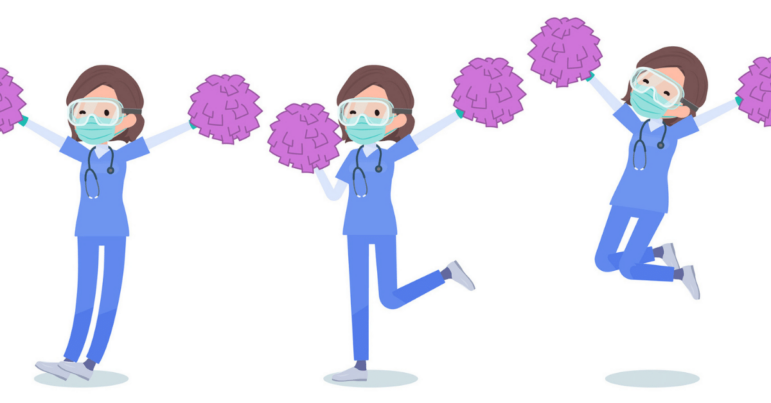It may seem like everyone has heard the same advice about Covid-19 — mask up, keep your distance, wash your hands, get vaccinated if you are eligible — yet misinformation still abounds. Clinicians may find themselves in a position to advise patients on Covid-19, some of whom may be skeptical about how serious the virus is or whether individual actions can make a difference. How can clinicians help patients make these decisions?
In a new edition of the Lown “Right Care” series in the journal American Family Physician, Stanford University Doctors Alan Glaseroff and Ann Lindsay, and patient advocates Helen Haskell and John James offer do’s and don’ts for clinician-patient conversations about Covid-19. Here are some key points from the article:
Don’t give a lecture. Simply telling patients to do something, even if there are good reasons behind it, is a poor strategy. Not only does lecturing not convince people to change their minds, it actually has been shown to strengthen their existing beliefs. In a recent opinion piece about motivational interviewing in the New York Times, psychologist Adam Grant explains, “Much as a vaccine inoculates the physical immune system against a virus, the act of resistance fortifies the psychological immune system.” In the medical context, giving a lecture and not listening to patients can also reduce trust, making it more likely that they won’t come back to the doctor when they have future health problems.
Do try motivational interviewing. Rather than preaching, clinicians can use motivational interviewing: A method of helping change someone’s behavior by “helping them explore and resolve ambivalence.” Often people understand the downsides of continuing unhealthy behaviors like smoking or not exercising, but they are ambivalent about changing because there is something in their way. Motivational interviewing helps people identify their own motivations behind changing a behavior and giving them actionable goals for the future to set them up for success. When used in a clinical context, this method has been shown to reduce alcohol consumption, promote diet and exercise, and help promote other healthy behaviors.
Do listen to patients’ concerns and identify goals. In motivational interviewing, “the clinician’s job is to help the patient make these changes by eliciting the patient’s life and health goals and thoughts about how they might achieve them,” the authors write. Clinicians might ask, “On a scale of 1 to 10, how important is your family’s health to you?” Haskell and James note that “people faced with difficult lifestyle changes may desire change for the sake of others more than for themselves.” Clinicians can help reinforce the importance of the goal by having the patient explain its significance in their life.
Do remain sensitive of social pressures around patients when it comes to masks and social distancing in their community. Depending on where people live, wearing a mask or taking other safety measures for Covid-19 is not just a health precaution; it has become somewhat of a political statement. “It takes courage to make a public statement such as wearing a mask in certain communities because of the emotionally and politically charged symbolism of masks in present times. This can be a barrier to change,” the authors write.
Don’t take sides. The next step is reflecting the conversation back to the patient. It’s important here to objectively state the goals that patients have and the barriers they face. “When the clinician does not take sides in the patient’s ambivalence, the patient is more likely to defend the importance of making changes,” the authors write.
Do identify specific actions to take. Clinicians should help patients start on the road to success by identifying specific actions they can take towards their goal, when they will do them, and how confident they are in their ability to follow through. For example, an action to reduce Covid-19 risk could be deciding to wear a mask inside certain stores, or to visit with friends outdoors instead of indoors. It’s better to identify small changes someone is confident they can do, rather than large changes they aren’t sure if they can do. Clinicians can ask to follow up to see if their patient has achieved their goals.
For more on motivational interviewing and Covid-19, read the full article in American Family Physician!
